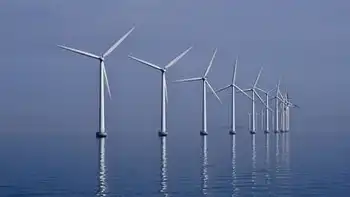Tajiks sink money into Sovietstyle dam
DUSHANBE, TAJIKISTAN - When Abdullo Bobokhonovs grandson was born in this Tajik village, he named the baby after a governmentordered hydroelectric dam and raised a small fortune to help fund it.
In the capital, Dushanbe, law student Alyona Arkhipova complains she was told she couldnt sit her exams unless she bought a share in the project.
One brims with pride while the other grumbles — two conflicting attitudes toward a $1.4 billion fundraising drive for a dam which the government touts as a cure for Tajikistans economic woes and energy gap, and which critics fear will bleed Central Asias poorest country dry.
The fundraising is driven by a propaganda offensive that harks back to when Tajikistan and four other Central Asian republics were part of the Soviet Union. And although there is some dissent, a visit to the former Soviet republic leaves the impression — even factoring in a possible fear of speaking openly — of a striking degree of acceptance and even enthusiasm for the Roghun dam.
This is the project of the century. When this plant begins operating, all of Tajikistans economic and political problems will be solved, said Bobokhonov, a 59yearold lawyer who, as family patriarch, got to choose the grandsons name — Roghunshoh, or King Roghun.
The family, which lives in a humble and tidy homestead in this tiny village in northern Tajikistan, also raised almost $1,200 for the dam.
The history of the Soviet Union was littered with similar grandiose projects aimed at bending nature to mans will. Now, 20 years after Tajikistan became independent, Roghun is held up as an object of national pride and a generationdefining path to a better future.
But the campaign compels Tajiks to spend meager savings on shares in Roghun at $23 each — a third of the average monthly salary and many, like the Bobokhonovs, are buying multiple shares. This raises concerns that the governments efforts could shatter livelihoods and stifle the countrys anemic economy.
It has also provoked rage in neighboring Uzbekistan, which fears the dam on the Vakhsh River could reduce the flow of water to its farmers.
Thats unlikely to bother many Tajiks. They tend to scorn objections from energyrich Uzbekistan, which has repeatedly cut off natural gas supplies to Tajikistan over delayed payments during freezing winter months.
The capitals main streets are adorned with banners and placards trumpeting Roghun. State television, which Tajiks rely on for news, devotes entire chunks of prime time to updates on the progress of the share sale. Countless billboards feature a hardhatwearing Emomali Rakhmon, Tajikistans ironfisted president since 1992.
Rakhmon vows that all investors in governmentissued Roghun stock will get their money back and more. There are hopes of selling surplus power to Afghanistan and Pakistan, but some worry that once electricity grids are laid out, they could be prey to militants in those countries.
It is far from clear when the dam will be completed, and the government has made only the vaguest promises about when its electricity will reach households or when it might generate profits.
The dam is expected to cost $2.2 billion and is designed to include six generating units with a capacity of 600 megawatts each. Around $175 million had been raised from the share sale by midMarch, which comes on top of the $120 million the government invested last year, but the project is still far short of the $600 million that Rakhmon says will be needed to complete the first phase by 2012.
There is no foreign investment in sight, and the World Bank is noncommittal, saying it will take around two years to study the dams technical feasibility and environmental impact.
The government insists that buying shares is completely voluntary, but Arkhipova, studying law at the TajikRussian Slavic University, tells a different story.
When the university term started, people in our class who didnt buy shares were quite simply denied the right to sit their exams, said Arkhipova, 23.
I wanted to avoid the same happening to me and I just wanted to do my test as normal, so I bought a share, she said.
Lowranking state workers have had portions of their salaries withheld to buy shares, and there have been media reports of some villagers being forced to sell cattle to raise money.
People talk about these things between themselves at the workplace, but they do not go to prosecutors out of fear of getting into trouble, said Sergei Romanov, a lawyer with the Dushanbebased Bureau on Human Rights and the Rule of Law.
Authorities promise the hydroelectric plant will bring an end to Tajikistans chronic electricity shortages.
The trauma of a blistering winter in 2007 is also still fresh in many minds, stirring support for the project. Frozen rivers reduced supply to the countrys main hydroelectric plant, leaving many regions without power and forcing Tajiks to endure some of the coldest weather on record without resort to electricity heaters. Hundreds of people died — many of them newborn babies in freezing maternity wards.
The Roghun project is meant in part to generate enough revenue to afford extra natural gas supplies when rivers freeze again.
It was designed to be worlds largest dam when the project started in the mid1970s, but it stalled as the Soviet Union collapsed, the economy went into chaos and a fiveyear civil war broke out.
More than half of Tajikistans largely Muslim population of 7 million is officially classified as poor. According to the International Monetary Fund, the remittances from migrant workers that keep the country afloat plunged by onethird last year. That and the fall in prices for the countrys main export commodities — aluminum and cotton — caused economic growth to shrink fourfold to 2 percent in 2009.
Economists believe the Roghun drive will only make matters worse in the immediate future.
The equity campaign may temporarily dampen growth in 2010 by up to one percentage point, with households reducing consumption... in order to purchase Roghun shares, the IMF said in a recent statement.
The Vakhsh begins in Tajikistan and flows into the AmuDarya river, the key irrigation source for Uzbekistans lucrative fruit, vegetable and cotton crops, and the neighbors complaint is being heard loud and clear.
In a letter to his Tajik counterpart, Uzbek Prime Minister Shavkat Mirziyoyev complained last month that tampering with river flows could disrupt the regions ecological balance and threaten the survival of millions of people.
The Tajik government has displayed complete disregard for our repeated statements on this issue, and it has continued to pursue construction of this facility without considering the possible consequences, Mirziyoyev said.
But Nasrullo Baimatov, a 56year old invalid retiree in the northern Tajik city of Khujand, is unmoved.
All this time, we have depended on Uzbekistan, he said. Once we build Roghun, we will rely on nobody.
Related News

Climate change: Electrical industry's 'dirty secret' boosts warming
LONDON - Sulphur hexafluoride, or SF6, is widely used in the electrical industry to prevent short circuits and accidents.
But leaks of the little-known gas in the UK and the rest of the EU in 2017 were the equivalent of putting an extra 1.3 million cars on the road.
Levels are rising as an unintended consequence of the green energy boom.
Cheap and non-flammable, SF6 is a colourless, odourless, synthetic gas. It makes a hugely effective insulating material for medium and high-voltage electrical installations.
It is widely used across the industry, from large power stations to wind turbines to electrical sub-stations in towns and…




